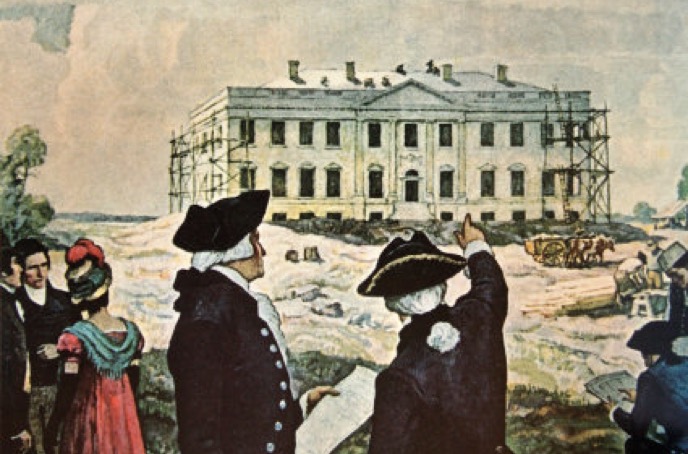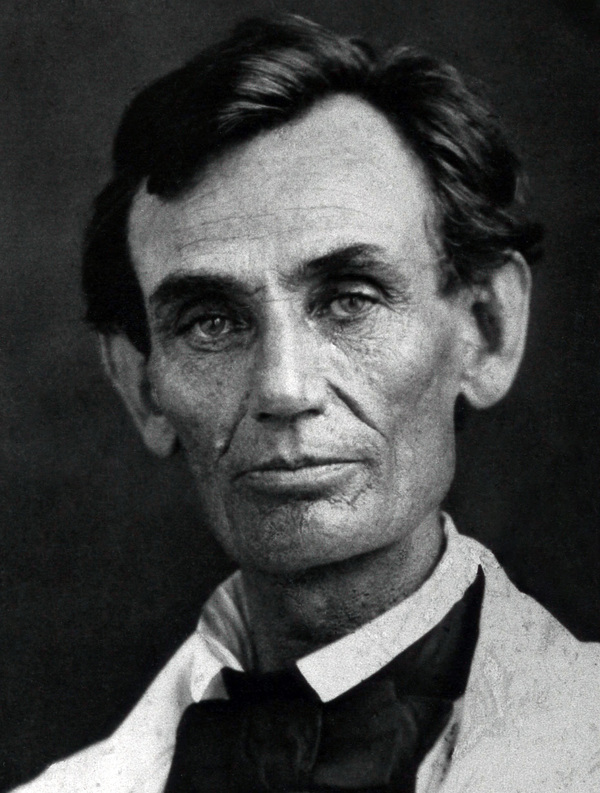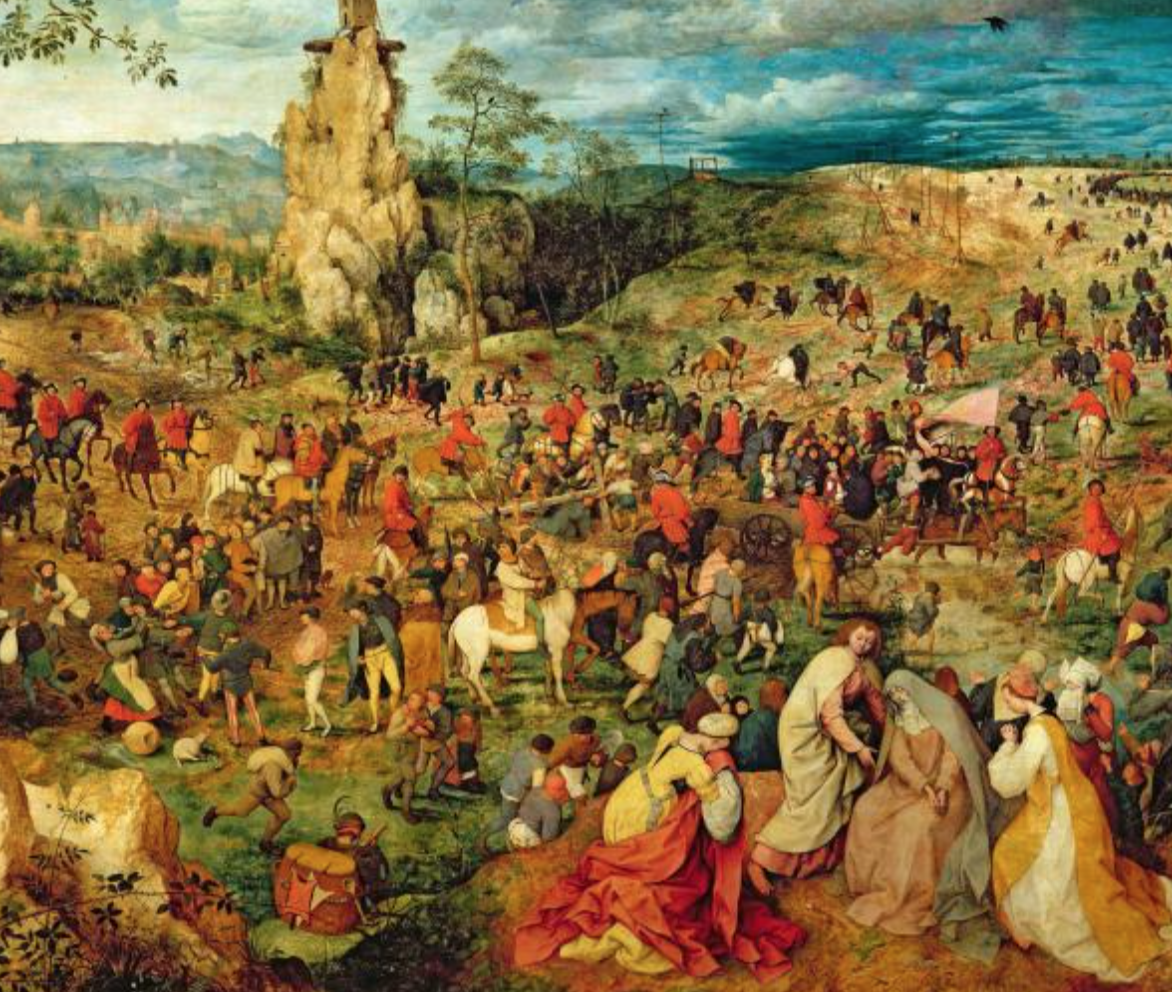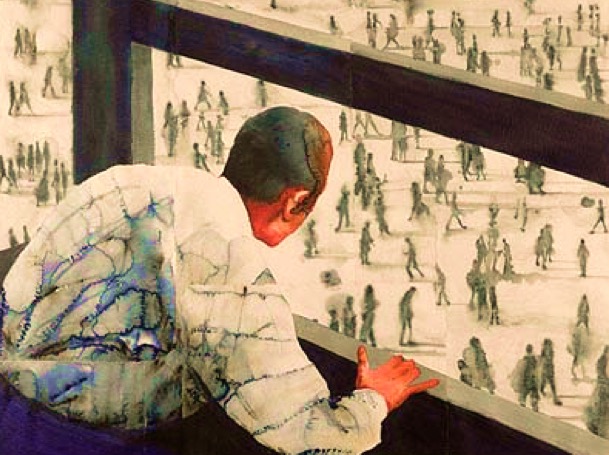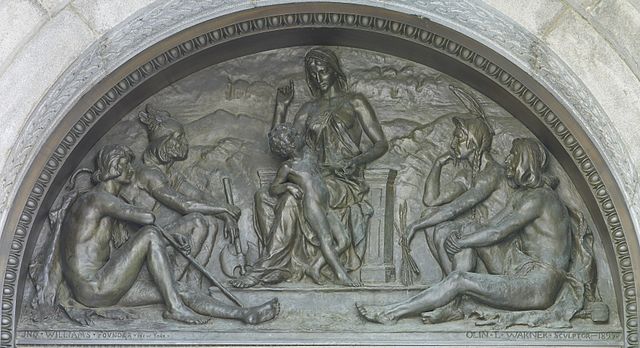Only justice preserves regimes, not history or tradition.
Forging a New Right, From Concepts to Perceptions
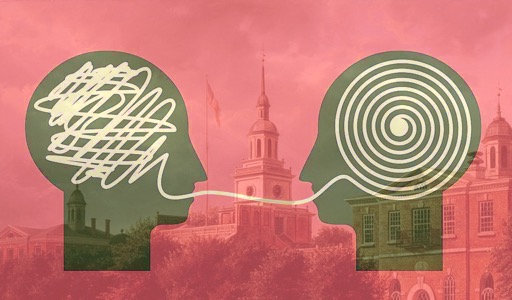
Our new world sheds new light on the relations between reason and tradition.
Yoram Hazony’s brief against rationalist conservatism was on my mind throughout this week’s National Conservatism conference. The rational is not necessarily rationalist, much as the national is not necessarily nationalist—deepening, at least at first glance, the longstanding imperative on the Right to keep putting in the requisite intellectual work to navigate the political twists and philosophical turns of high-level rhetoric and dialectic.
This, in one sense, means there is more continuity than perhaps meets the eye between the Right of the pre-smartphone age and the Right of today; but Hazony, in both his essays and his conference keynote address, wants to introduce a break in the pattern, returning the Right to not just tradition as such but to the logic of tradition. In his evocative telling, the operation of this sort of tradition is generative of human flourishing, and makes that flourishing intelligible, in the decisive and necessary ways, ways the politics of public reason does not and can’t.
Nevertheless, to present and unpack this judgment, and the train of thought behind it, Hazony must resort—like anyone making a case—to rhetoric and dialectic, even though the logic of tradition is one that need not and in the fundamental respects even must not “speak,” whether in the figurative sense of “speaking up for itself” in the court of debate or in the literal sense of relying on pre-lingual communication. The logic of tradition resides in the realm of that which is hidden, tacit, intimate, and historically, the feminine in contrast to the declamatory, explicit masculine.
As any alert attendee at the National Conservatism conference well knew, deep differences on these matters are to be found below the intellectual surface of the Right. Some theorists, for instance, in the vein of Patrick Deneen, would contend that tradition has already lost its position in “traditional” societies—that is, tradition has lost its authority and the potencies within it—the moment it, or its would-be representatives, has to take to the witness stand and make a case. Hazony does not go there: he is much more amenable to, and trusting of, the politics of public speech. He places a significant measure of faith in the prospect that mounting a public defense of tradition is salutary and fruitful not only for culture, but for politics itself.
Yet I, along with others, cannot help but detect a logic in Hazony’s argument that complicates matters. If the Right is to be renovated through a retrieval of the national by way of tradition—at a time when tradition has become so decrepit among the people—who, or what, will be doing the retrieving?
Gaming the Liberal System
I take Hazony to say that liberalism became a certain kind of language game that conservatives accepted on the basis that it produced legitimate outcomes insofar as they were true or the closest possible to truth. Conservatives in the Anglo-American tradition extending out from Burke embraced the conduct of politics as if it were a debate or a court case. Both sides would speak over a contested issue; whichever’s speech was best would win control of procedure and thus achieve their desired outcome. Conservatives thought this reasonable and honorable, and so were willing to run the risk of occasionally verging towards the rationalist extreme on the one hand and histrionics on the other. Even so, they thought, their true aim was to achieve the mean found in reason and honor.
Yet liberals too increasingly used victory in speech as the warrant for victory in politics. In so doing they disarmed conservatives where they had been strong—in the realm of politics long warranted by traditional practices which had not previously needed speech to command authority. This also distracted conservatives from a simultaneous liberal effort to ramp up the strength of liberals’ own more irrationalist practices, a form of politics arising not out of John Stuart Mill but a militant creedal gnosticism.
As we now see ever more plainly today, discursive rationalism has become among liberals little more than a cover story for the Left’s irrationalism, a “woke religion,” the authority and power of which the “rationalist” Right has proven—at least until very recently—incapable of overcoming. Although liberal rationalism has not protected any traditional practices based on the authority of that which previously did not need to be said or argued, liberal rationalism is now showing itself incapable of rebutting left irrationalism. This leads observers to suppose that all rationalism is inescapably instrumental; the result of the attempt to reduce all politics to mere law-making is that all law becomes make-able. Thus arguments in speech dissevered from lived practices gain bizarre power, from whatever “side.” Whatever rationalism can be forced into serving one’s desired outcome, whatever that might be, becomes legitimate—even authoritative.
Hazony’s support for the politics of public speech implicitly turns on this difficulty: the extent to which politics can only function properly in the West if it is not reduced to a language game in which those best at using instrumental reason to perfect their vision of the city in speech win power. Under such conditions, the abstracted principle of “free and untrammeled reason” becomes merely an instrumental piece of rhetoric designed to produce winning results for liberals in the legalistic court of said language game. But in terms of human nature and politics properly understood the game is fraudulent, and so it routinely breaks down and fails to produce the victories either rationalist liberals or conservatives expect.
The reason “free and untrammeled reason” is a fraud is twofold. First, human reason is actually not untrammeled by nature —something that could readily be described, despite Hazony’s reluctance to do so, as a natural law. Second, that which is free by nature is not by nature untrammeled in its freedom—a dynamic expressed in the theory of natural right, which again Hazony is reluctant to embrace on anti-rationalist grounds.
Unaided reason may secretly or otherwise rebel against the truth that reason is only free—and freedom only exists—in a context of constraint. But the human reality exposed by aided reason is that “truly” unaided reason is an illusion—a fantasy—a wishful piece of rhetoric deployed in dialectic against nature and God. In Tocqueville’s idiom, only the “habits of the heart,” or in the Biblical idiom “the law written in the heart,” as Tocquevillean sociologist Robert Bellah observes, are disclosed as the true secret of reason’s potency. Only they anchor a wide and fruitful compass in human affairs, where all is in flux, providing a fixed point to which we may always return for orientation and shelter. Hazony, by contrast, wants to use the idiom of the fence, of drawing the right boundary and grasping the due measure, which Plato reminds us democrats always struggle to do well.
The difficulty is that our need for competent boundary-drawing and measure-granting leads directly to reliance on expertise in philosophical reason as the foundation of law, and law as the foundation of order. One way to try slipping this trap is by arguing that tradition—practices that do not depend for their authority on being articulated or argued for in a pitched legalistic language game—conserves constraint. Tradition thereby conserves both right reason and well-ordered freedom, by justifying constraint on the non-rationalist, non-philosophical, non-legalist, and non-rhetorical grounds of the inherited cultivated common sense of the people.
Hazony does not quite make this move because he does not seem inclined to see public political discourse as a trap for traditionalists. At the same time, however, he does not quite explain how tradition would successfully prevent even very traditional people from developing notions of natural law and natural right, and putting them to use—perhaps even putting them front and center—in the court of public speech.
Were Hazony more critical of the self-defeating character of liberal public rationalism in the mold of John Stuart Mill, he could undergird a case in speech against reducing politics to cases in speech. He could do so by expressing his conviction that our ravaged nation(s) can be healed with political tools wielded by political actors other than the people themselves. The people, Hazony seems prepared to say but does not come out and say, are currently too enfeebled or dissipated by bad liberal politics to alone revive their own capacity to counter and replace those bad politics. So we need statesmen after all—a new anti-rationalist elite that is nevertheless capable of using rhetoric and dialectic well precisely because they understand public speech and formal thought are not sufficient to secure and protect the generative common good over generations.
Honor and Humility
As it stands, however, the tool of political science Hazony wants conservative statesmen to use—presumably, the only main one they can use given how many tools he has disqualified as self-defeating rationalism—is honor, or the doling out of honors to those who best and most constrain themselves (that is, who cultivate their own inner honor).
A public ethic of sacred honor, a tradition into which American political life has been plugged since before the Founding, is, of course, not alien to defenders of the Enlightenment. It was of a piece with the Constitutional sensibility of the Founding that American acquisitiveness, freed from political confinement, required moral and religious anchorages. When Hazony rightly remarks that, “while the difference between healthy and sick itself is a matter of nature and may be similar in all times and places, the experience and understanding of each observer will be somewhat different, and the proposed manner of reducing the health of the creature in question to principles will vary somewhat in each case,” I think of Harry Jaffa explaining the variability of natural right among different political communities in different times and places. I think both Hazony and Charles Kesler, for instance, might ultimately agree that there is no strictly principled or strictly traditionalist way to identify the precise boundary between, or measure due to, creed on the one hand and culture on the other, or to principle and to tradition themselves. Here on Earth, at least, there is no ultimate position from where we can grasp and master the perfect or complete relationship between justice and nature: in our irreducible disagreements, no matter how whole and healed the nation, its people, or their traditions, we must always merely approximate the common good.
This is why conservatives, regardless of where they land in the balance, tend always to fall back on sensibilities when it comes to questions of whether to tilt under particular circumstances more toward principles or traditions. Neither will be expunged; traditions alone tend to lead people to say “well, even if there are not True Principles, there are Our Principles,” and principles alone tend to lead them to say “well, even if Tradition is not the final judge of the Ideas we know are true, Our Tradition is both honorable and wise because it made us the kind of people for whom the truth of true Ideas became so well knowable.” I suspect this is why honor becomes Hazony’s go-to tool, or tool of last resort, for the statesman faced with our problems: honor is the tribute tradition and principle pay to one another, both in our individual and social lives.
But what does that look like for the activist conservative, “whether scholar or statesman?” How can it be done? Is the upshot anything more or different than Tocqueville’s counsel, or that of the Founders? Hazony concedes that he hasn’t proven whether the things he thinks conservatives can and should do will have the necessary effect; are there clear enough indications, then, of whether the people are really as exhausted or stripped of traditionalist agency as, over the course of his argument, they appear?
Answers might come from reflecting on what we know or can know about the unforeseen and “unthinkable”—about forms and practices of life that renew the heart, the spirit, and shared life while reversing what was billed, by rationalists, as progress, especially of the ostensibly irreversible kind. We know that nations and peoples can and do experience at certain times snapback effects: great awakenings, fruitful retrenchments, strategic retreats from excessive ambitions, and so forth. But political theorists, especially those arguing afresh about the proper place of Aristotle in our comprehension of the common good, should pay renewed attention to the philosopher’s more sociological science of formal cause. It is here that Aristotle helps us see how effects precede their causes—how what we perceive should lead us, like detectives, to reason “backwards” to revise our concepts, our ideas about the world we find ourselves within. Intriguingly, it was Tucker Carlson who hit upon this theme most directly in his conference keynote, warning that the Right needed to come down from the attic of its head, where obsolete concepts had piled up, and dare to form new judgments—based on little more than direct perception of the new realities outside its door.
To reason this way might uncover very different causes of our decline and hitherto unseen possibilities for renewal. The conceptual collapse among rationalists, liberals, and established conservatives that has opened space for a renewed sense of nations and peoples is, at least partially, the product of a dramatic change in our psychological and social environment, one brought on by transformations in technology shaped by human hands which, in turn shape the understandings and habits of human beings. As urgent as the need and longing for new practitioners of statecraft may be, the wise and prudent statesman of our era must boldly recognize that the retrieval of generative social and cultural forms amid the conceptual wreckage of our obsolescing elite may be spurred even more by the digital environment re-forming our direct experience than by any program or act of will.
The American Mind presents a range of perspectives. Views are writers’ own and do not necessarily represent those of The Claremont Institute.
The American Mind is a publication of the Claremont Institute, a non-profit 501(c)(3) organization, dedicated to restoring the principles of the American Founding to their rightful, preeminent authority in our national life. Interested in supporting our work? Gifts to the Claremont Institute are tax-deductible.
Political prudence requires reason—which is why a "conservative rationalism" that embraces universals and particulars alike is needed now more than ever.
The liberal order rests on conservative, not rationalist, foundations.
The traditions of American civilization carry intelligible moral ideas.
If local communities are to survive, institutionalized shame toward America must be rooted out.
When a good is not enough, we need to nourish it anyway.

